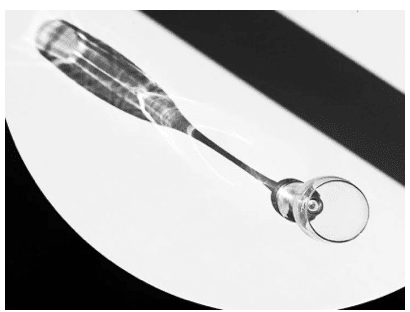According to a study, “ibuprofen is associated with increased blood pressure and hypertension” compared to celecoxib given to patients who had osteoarthritis or rheumatoid arthritis and increased risk of cardiovascular disease.
The results from the PRECISION-ABPM (Prospective Randomized Evaluation of Celecoxib Integrated Safety versus Ibuprofen or Naproxen Ambulatory Blood Pressure Measurement) study revealed that non-steroidal anti-inflammatory drugs (NSAIDs) – both non-selective and selective cyclooxygenase-2 (COX-2) inhibitors – are some of the most widely prescribed drugs worldwide.
However, they are linked with increased blood pressure and adverse cardiovascular effects. At least 19 percent of the U.S. population use at least one NSAID on a regular basis; this includes 30 million Americans with osteoarthritis, more than 40 percent of whom also have hypertension. PRECISION-ABPM aims “to determine the blood pressure effects of the selective COX-2 inhibitor celecoxib compared to the non-selective NSAIDs naproxen and ibuprofen.” (Related: Ibuprofen and Other NSAIDs Kill 2,500 a Year in the UK.)
PRECISION-ABPM was a “prospective, double-blind, randomized, non-inferiority cardiovascular safety trial.” The pre-specified four-month sub-study, which was conducted at 60 sites in the U.S., involved 444 patients: 408 (92 percent) had osteoarthritis and 36 (eight percent) had rheumatoid arthritis. All patients showed signs of, or were at an increased risk for, coronary artery disease.
Principal investigator Professor Frank Ruschitzka, professor of cardiology and co-head, Department of Cardiology, University Heart Centre, Zurich, Switzerland, shared: “PRECISION-ABPM showed differential blood pressure effects between the different NSAIDs, ibuprofen and naproxen, and the COX-2 inhibitor celecoxib. While celecoxib and naproxen produced either a slight decrease (celecoxib) or a relatively small increase (naproxen) in blood pressure, ibuprofen was associated with a significant increase in ambulatory systolic blood pressure of more than 3 mmHg.”
Mother Nature’s micronutrient secret: Organic Broccoli Sprout Capsules now available, delivering 280mg of high-density nutrition, including the extraordinary “sulforaphane” and “glucosinolate” nutrients found only in cruciferous healing foods. Every lot laboratory tested. See availability here.
These results support the findings of the PRECISION trial, proving “noninferiority for the primary cardiovascular outcomes for moderate doses of celecoxib compared with naproxen or ibuprofen.” These findings may have the greatest clinical significance in the elderly, who are often diagnosed with arthritis and hypertension.
According to Professor Ruschitzka, the study reveals that NSAIDs like ibuprofen may not be as safe as previously thought. He advises patients with osteoarthritis and arthritis to consult their doctor before taking NSAIDs to “weigh the potential hazards of worsening blood pressure control when considering the use of these agents.”
“Since decreasing systolic blood pressure by just 2 mmHg lowers stroke mortality by 10 percent and ischaemic heart disease mortality by seven percent, increases in systolic blood pressure associated with NSAIDs as observed in PRECISION-ABPM should be considered clinically relevant,” Professor Ruschitzka concluded.
While NSAID labels include warnings about potential increases in blood pressure, little is known about the effects of individual drugs. Maintaining or achieving blood pressure control in patients with arthritis and concomitant hypertension (treated or untreated) could prevent over 70,000 deaths from stroke and 60,000 deaths from coronary heart disease each year, which means it is important to investigate the effects of various NSAIDs on blood pressure.
Natural alternative to ibuprofen
Although ibuprofen is a painkiller, anti-inflammatory, and anti-pyretic, like any other medication, it has negative side effects. These include diarrhea, abdominal problems, ulcers, headaches and even heart problems and heart attack.
If you wish to try natural alternatives to ibuprofen, try some of these options:
- Turmeric — Turmeric has anti-inflammatory properties and keeps your joints healthy. It is available in powder and pill form.
- Arnica — This is generally used for muscular pains, tears and rheumatoid arthritis. It can be used as an infusion of a teaspoon of the dry plant with a cup of water. Apply to the affected area with a clean cloth. Arnica is meant for external use only. Do not consume it.
- Salix Alba — This has painkilling effects that are suitable for menstrual pains, muscle pains, headaches and arthritis. It can also lower your fever.







